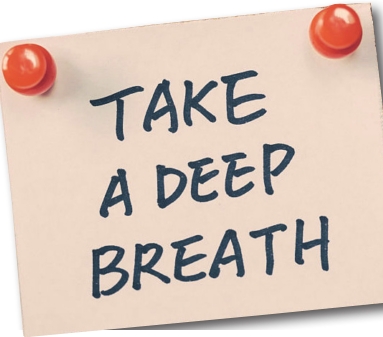THE IMPORTANCE OF SELF-CARE IN THE MANAGEMENT OF ARTHRITIS

7 steps one can take
There are many things patients with arthritis can do to improve and maintain their quality of life.
Self-care, or self-management, means taking a proactive role in treatment by utilizing strategies to help manage symptoms. Self-management is about making healthy lifestyle choices while addressing the physical and emotional effects of arthritis. There are seven important self-management strategies that can help you successfully manage your condition.
Maintain a healthy diet. Eat healthy foods rich in antioxidants, which help control and reduce inflammation. I recommend the Mediterranean diet, which emphasizes fish, fruits and vegetables and olive oil. It’s also important to eliminate or significantly reduce processed foods and sweets which increase inflammation. Supplements such as turmeric and omega-3 fish oil may help with arthritis pain and morning stiffness. Check with your physician first before taking supplements. Maintaining a healthy weight is very important. For individuals who are overweight, even moderate weight loss makes a big difference on weight-bearing joints: Every lost pound subtracts four pounds of pressure from the knees for each step taken.
Practice good sleep hygiene: In addition to pain and inflammation, fatigue is one of the main characteristics of arthritis. Lack of sleep can also cause weight gain, which puts extra stress on joints. So, getting sufficient sleep is essential. In addition to allotting enough time for sleep, practice good sleep habits, such as going to bed and getting up at the same time each day and limiting daytime napping. Make your bedroom dark, cool and quiet, avoid caffeine or strenuous exercise in the evening, and wind down with a warm bath or practice relaxation techniques before bedtime.
 Manage stress. Learning effective ways to cope with stress generally helps reduce depression, anxiety and fatigue. A more relaxed state of mind contributes to more restful sleep. For patients with arthritis, stress management gives a feeling of control over symptoms which may have seemed overwhelming. As a result, quality of life improves. Develop a plan to keep a handle on emotional stress by allowing time each day to relax. Control what you can. That may include learning to say no. Try stress management techniques, such as deep-breathing exercises or meditation, guided imagery and visualization. Cognitive behavioral therapy can also be very helpful.
Manage stress. Learning effective ways to cope with stress generally helps reduce depression, anxiety and fatigue. A more relaxed state of mind contributes to more restful sleep. For patients with arthritis, stress management gives a feeling of control over symptoms which may have seemed overwhelming. As a result, quality of life improves. Develop a plan to keep a handle on emotional stress by allowing time each day to relax. Control what you can. That may include learning to say no. Try stress management techniques, such as deep-breathing exercises or meditation, guided imagery and visualization. Cognitive behavioral therapy can also be very helpful.
Stay active. Appropriate exercise is so beneficial it’s considered a main part of treatment for arthritis. Benefits you can expect: reduction in pain, lifted mood, enhanced sense of overall well-being, and a feeling of being in control. Choose exercises that emphasize low-impact aerobics, muscle strengthening and flexibility. Recommended aerobic activities include walking, swimming, biking and water aerobics. Other great options include tai chi and yoga, which emphasize stretching, good posture and flexibility. Incorporate activities that are tailored to your fitness level and capabilities, and keep in mind any joint damage or limitations that exist. I often recommend consulting a physical therapist to design a personalized exercise program that is just right for you.
Always
check with your physician before beginning a new exercise program. Keep
in mind that at first, exercise may increase your pain, but over time
exercise often decreases symptoms. The key is incorporating exercise
gradually and consistently. So, start slowly.
Remember to pace yourself. Balance activity with rest. Don’t overdo when you are feeling at your best, but at the same time don’t do too little when your symptoms flare. Practice moderation. Rest is important on the days when your arthritis is acting up, and you are experiencing inflammation, stiffness and pain. On those days, cut back on your schedule, and delegate when you can. Pacing yourself throughout the day and taking breaks will help to maintain your stamina.
Do something for yourself. Dealing with a chronic condition such as arthritis necessitates demands on your time that other healthy people do not have. Coping with the pain and fatigue that often accompanies arthritis requires prioritizing your day so that you have enough energy to achieve goals that are most important to you. Strive for balance in your daily “to do” list and schedule time each day to do something that is rewarding and enjoyable to you.
Complementary therapies: Massage therapy has many benefits: It reduces your heart rate, relaxes tight muscles, improves the joints’ range of motion, and helps to lessen pain. Applying heat and cold to affected joints is helpful in alleviating pain and stiffness. Heating pads or warm baths or showers work best for soothing aching joints and tired muscles. Cold is best for acute pain, working to numb painful areas and decrease inflammation.
 Arthritis affects everyone differently.
Arthritis affects everyone differently.
Partnering with your physician and taking a proactive role in your care to implement what medical and nonmedical treatments work best for you is the key to living well with arthritis.
Robert E. Goodman, M.D. is a Board-Certified Rheumatologist in Shreveport with over 30 years of specialized rheumatology experience in the diagnosis and treatment of musculoskeletal disease and systemic autoimmune conditions. Contact him at The Arthritis & Rheumatology Clinic: 424-9240. www.arthdoc.com
